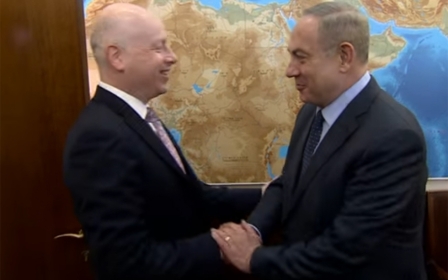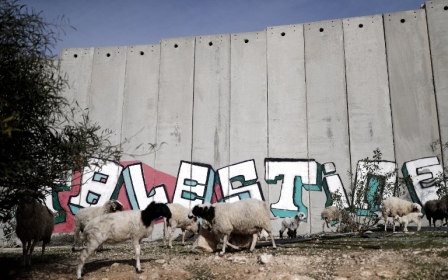'Apartheid' Israel: Head of UN body resigns over pressure to withdraw critical report

The head of the United Nation's West Asia commission resigned on Friday, after what she described as pressure from the secretary-general to withdraw a report accusing Israel of imposing an "apartheid regime" on Palestinians.
The Economic and Social Commission for Western Asia (ESCWA), which comprises 18 Arab states, published the report on Wednesday, saying it was the first time a UN body had clearly made the charge.
However two days later, Rima Khalaf, UN under-secretary-general and ESCWA executive secretary, announced her resignation at a news conference in Beirut.
"I stand by my assessment in the report, that Israel is committing the crime of apartheid," she said at the conference.
"I find myself unable to accept the pressure placed on me over the last period of time.
"The secretary-general demanded yesterday that I withdraw the report, and I refused," she said, adding: "I believe that discrimination on the basis of skin colour, religion or ethnicity is unacceptable."
Secretary-General Antonio Guterres on Thursday asked for the report to be removed from the UN website.
The UN on Friday accepted her resignation, with spokesperson Stephane Dujarric saying: "This is not about content, this is about process."
"The secretary-general cannot accept that an under-secretary-general or any other senior UN official that reports to him would authorise the publication under the UN name, under the UN logo, without consulting the competent departments and even himself," he told reporters.
Dujarric had earlier said that “the report as it stands does not reflect the views of the secretary-general” and was written without consultations with the UN secretariat.
The United States, an ally of Israel, said it was outraged by the report. "The United Nations secretariat was right to distance itself from this report, but it must go further and withdraw the report altogether," the US ambassador to the United Nations, Nikki Haley, said in a statement.
The Israeli ministry spokesman, Emmanuel Nahshon, commenting on Twitter, also noted the report had not been endorsed by the UN secretary-general.
"The attempt to smear and falsely label the only true democracy in the Middle East by creating a false analogy is despicable and constitutes a blatant lie," Israel's UN Ambassador Danny Danon said in a statement.
What was in report?
The report said it had established on the "basis of scholarly inquiry and overwhelming evidence, that Israel is guilty of the crime of apartheid.
"However, only a ruling by an international tribunal in that sense would make such an assessment truly authoritative," it added.
The report said the "strategic fragmentation of the Palestinian people" was the main method through which Israel imposes apartheid, with Palestinians divided into four groups oppressed through "distinct laws, policies and practices".
It identified the four sets of Palestinians as: Palestinian citizens of Israel; Palestinians in East Jerusalem; Palestinians in the West Bank and Gaza Strip; and Palestinians living as refugees or in exile.
ESCWA hoped the report would inform further deliberations on the root causes of the problem in the United Nations, among member states, and in society, Khalaf said at an event to launch the report at ESCWA's Beirut headquarters.
It was authored by Richard Falk, a former UN human rights investigator for the Palestinian territories, and Virginia Tilley, professor of political science at Southern Illinois University.
Before leaving his post as UN special rapporteur on human rights in the Palestinian territories in 2014, Falk said Israeli policies bore unacceptable characteristics of colonialism, apartheid and ethnic cleansing.
Middle East Eye propose une couverture et une analyse indépendantes et incomparables du Moyen-Orient, de l’Afrique du Nord et d’autres régions du monde. Pour en savoir plus sur la reprise de ce contenu et les frais qui s’appliquent, veuillez remplir ce formulaire [en anglais]. Pour en savoir plus sur MEE, cliquez ici [en anglais].




